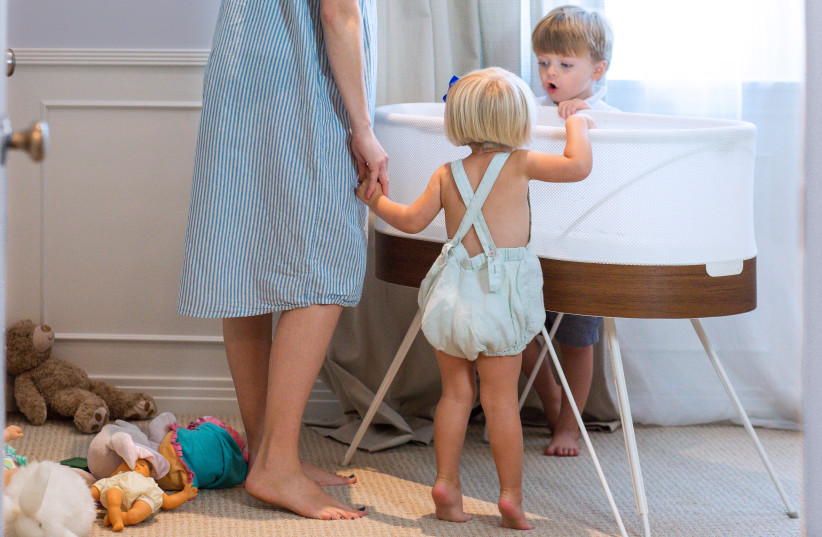First, your kids refuse to shower, then refuse to get out. Afterward, they don't know what they want to eat: Parenting never goes as planned.
Kids always want just one more story, and one more, and one more. Just when they finally go to bed and you think you will be able to rest a little, then comes the bathroom stage, the hunger and the need to tell you everything that happened in kindergarten. At this point you ask yourself, why is this so complicated?
You aren't alone in this feeling, and the evening hours are challenging in most homes. While the evening is going on and the child is conducting professional negotiations for a long time, the parents feel that their gas tank is empty.
Parents don't want to hear "I don't feel like it," have no patience for "just one more story" and certainly there is no energy to fill another glass of water and take the kids to the bathroom for the fifth time.
The goal is for kids to go to sleep alone, say good night and leave the room, and the kids will go to sleep.
Why don't they want to sleep?
Let us try to examine things from the child's point of view: Sleeping isn't simple. Going to sleep is a farewell to the day and those around it.
The night darkness feels threatening, and sometimes kids go to sleep with the feeling that the world continues on without them. There is a feeling of missing out, i.e. FOMO. Then, add any fears and emotional difficulties that kids have.

In the end, for a child to go to sleep easily, the emphasis should be on a pleasant atmosphere and not on ticking off a checklist. To manage the evening in a gentle way, think of a time capsule: Quality, fun, essential, important and healing time for both parties.
To create such a time capsule, we must understand why kids behave this way and ask: Are they lacking time with mom and dad? Is a kid having a hard time in kindergarten or school? Is this a time of fear? Is the house undergoing a change like pregnancy, childbirth, moving, or some kind of crisis?
When we realize that nothing requires special attention, teach kids to join the evening schedule and help them manage it nicely. This way we can stop wasting time every night on arguments and rushing around and instead have time to tell another story.
We can tell the kids we had a lot of fun with them tonight. Kids will learn that it is worth it to have a pleasant evening and everyone will enjoy the evening and go to bed with a good feeling.
It is very important to teach kids that there is an evening schedule. There is time for fun, bath time, dinner, time for a bedtime ritual and then time to sleep. It is also important to teach kids to work together according to the schedule and not try to drag out every part of the evening.
We need to teach kids that our time is limited. There is a lot of time allotted to the kids, and the kids can manage together with us this time. Later this evening this time will end, and all other questions and wants will have to wait until tomorrow.
Obviously, we as parents will notice that sometimes kids are having a hard time so we will give our full attention even past their bedtime, but this won't happen every day and for no reason.
Such a time capsule may sound unbelievable, but I promise that if you change the language at home to a positive one, and do it in a correct and constructive way that gives kids both boundaries and security, the whole dynamic changes for the better.
Then you can enjoy both worlds: Putting kids to sleep with a ritual, and also that as they mature they will fall asleep independently in their own place, calmly.
Naama Tzobel teaches parenting skills to parents and families.